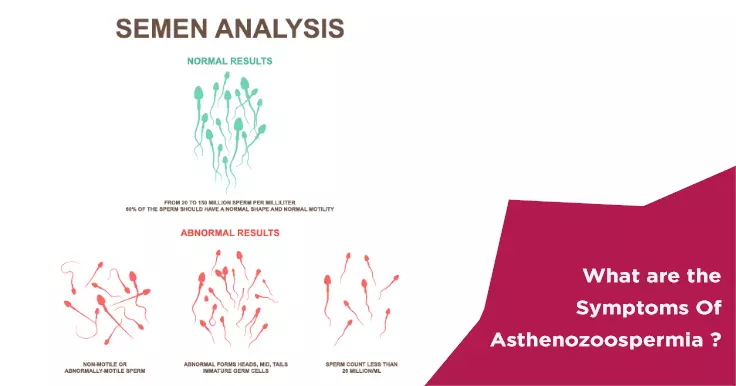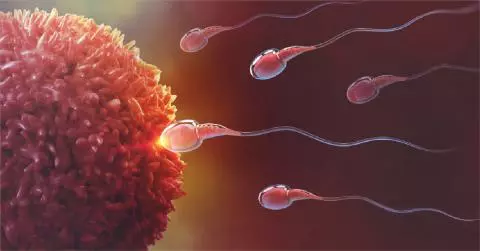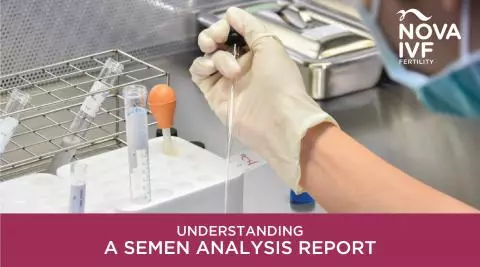What are the Symptoms Of Asthenozoospermia?

Asthenozoospermia is a condition where a man suffers from a certain degree of sperm immotility (more than or equal to 60% of his sperm is not motile). Motility refers to the ability of the sperm to travel or swim. This is an indispensable characteristic in the normal reproduction process as the sperm travels from the testes during ejaculation and swims through the female's reproductive tract to bond with the egg.
If the diagnosis shows less than 32% of the sperm as having progressive motility, then this is also defined as Asthenozoospermia. Complete Asthenozoospermia occurs when 100% of the sperm does not achieve motility.
Symptoms of Asthenozoospermia
There are no outward symptoms of Asthenozoospermia and most cases are diagnosed in infertility trials. Inability to fertilise an egg is the most relevant symptom of Asthenozoospermia. Semen analysis is needed to confirm the occurrence of this condition.
Causes of Asthenozoospermia
There are many causes of Asthenozoospermia:
- DNA Fragmentation is one of the prime reasons why sperm does not achieve motility.
- Necrozoospermia is also associated with Asthenozoospermia
- Congenital metabolic disorders can also cause Asthenozoospermia
- Excessive smoking and alcohol consumption
- Exposure to harmful chemicals and heavy metals
- Infections in the genitals or reproductive ducts
Asthenozoospermia can only be diagnosed by specialists armed with the required know-how and tools. Treatment methods vary according to the specifics of the case. Infertility treatments like IVF/ICSI (or in vitro fertilization with Intracytoplasmic injection) are recommended.
Reach out to an expert to learn more about this condition.
 Infertility Counselling
Infertility Counselling Female Infertility Treatment
Female Infertility Treatment Andrology Treatment
Andrology Treatment Fertility Enhancing Surgeries - Female
Fertility Enhancing Surgeries - Female Fertility Enhancing Surgeries - Male
Fertility Enhancing Surgeries - Male Endoscopy Treatment
Endoscopy Treatment IUI Treatment
IUI Treatment IVF Treatment
IVF Treatment ICSI Treatment
ICSI Treatment Advanced IVF Solutions
Advanced IVF Solutions Embryology
Embryology Vitrification Egg, Embryo, Sperm Freezing
Vitrification Egg, Embryo, Sperm Freezing Preimplantation Genetic Testing (PGT)
Preimplantation Genetic Testing (PGT) Donation Program Embryo / Egg / Sperm
Donation Program Embryo / Egg / Sperm Self-cycleTM IVF
Self-cycleTM IVF

 Self-cycleTM IVF
Self-cycleTM IVF










